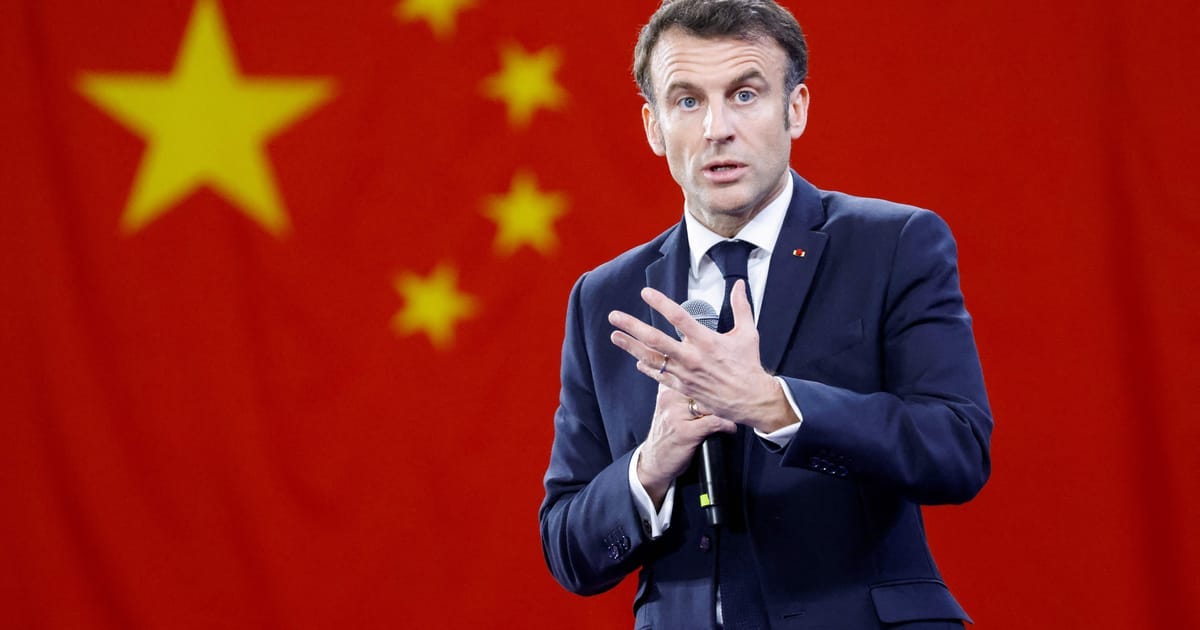A Shift in Europe's China Policy?
China continues its diplomatic juggernaut
When French President Emmanuel Macron and European Commission President Ursula von der Leyen set out for Beijing last week, no one expected the comments Macron made on the return leg. After all, prior to departure von der Leyen had outlined a new European strategy for China, substituting decoupling with economic de-risking, basically supportive of the US position. It was assumed that the two leaders were in sync, but that did not turn out to be the case.
This is not the first time France caught the world by surprise regarding its China policy. In 1963, a decade before Nixon decided to use China as a fulcrum against the Soviet Union, French President Charles De Gaulle made history when he sent his envoy to Beijing with a personal letter offering China’s communist government diplomatic recognition. His explanation was that almost fifteen years after the establishment of the People’s Republic, he was simply recognizing reality, but it is also thought that de Gaulle believed this action would help establish France’s foreign policy independence from the US.
On January 27th, 1964 diplomatic relations between China and France were fully restored, years before any other major power. Washington was not amused, and saw it as a betrayal of the Western alliance against communism: the US had just picked up where France left off in Vietnam. This weekend, Macron’s remarkable statements so strongly supportive of China’s positions on a variety of key issues after his state visit are causing similar consternation. The effects on both geopolitics and global trade could be far-reaching.




